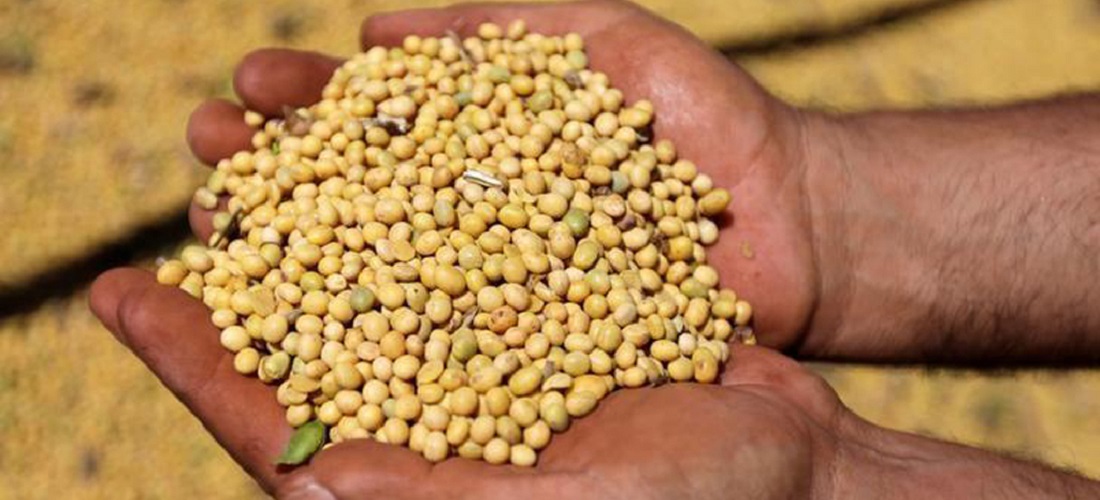
Soy Moratorium creates impasse for exporters
Oct, 25, 2024 Posted by Gabriel MalheirosWeek 202442
The potential end of tax benefits and initiatives such as the donation of public lands to companies participating in the Soy Moratorium in Mato Grosso state has created a dilemma for businesses, which they may need to address as early as the beginning of 2025. The issue gained urgency last week when the state legislature passed a bill that prohibits the granting of incentives to companies that participate in national or international agreements imposing restrictions on the expansion of agricultural activity in areas not protected by specific environmental legislation. The law now awaits approval by Governor Mauro Mendes.
Currently, the most widely used incentive program by soybean processing industries is the Industrial and Commercial Development Program (PRODEIC), which offers tax breaks ranging from 50% to 90% for companies that sell processed products both within and outside the state. These credits allow companies to pay reduced ICMS (state tax on goods and services). These ICMS credits are set to phase out by 2032 with the upcoming tax overhaul. However, for companies complying with the Soy Moratorium, the new state legislation could terminate these incentives as early as January next year.
Depending on how the new law is regulated, companies may have several options: individually maintaining their commitment to zero deforestation outside the Soy Moratorium; continuing under the collective agreement but foregoing tax benefits; or possibly even ending the incentive program aimed at curbing deforestation, suggested André Nassar, executive president of the Brazilian Association of Vegetable Oil Industries (ABIOVE).
“This is a matter we will have to discuss as a sector to determine whether the law allows room for modifications that would enable the continuation of the Soy Moratorium, or whether it may need to be ended altogether. This presents a significant challenge for our companies because, even if they are not part of the Moratorium, they will still need to maintain a zero deforestation standard, as customers will continue to demand deforestation-free soy from the Amazon,” Mr. Nassar said.
The Soy Moratorium is a multisectoral initiative involving industries, civil society, government, banks, and non-governmental organizations. Any change to the rules would require approval from all signatories to the environmental pact. Mr. Nassar said the Soy Moratorium has had a clear positive environmental impact without harming production, which has grown since the agreement began. However, some producers disagree.
According to ABIOVE, soy exports from the Amazon biome increased by 500% during the Soy Moratorium, rising to 18.5 million tonnes per year from 3 million tonnes. “At the beginning of the Moratorium, 70% of soy produced in the Amazon biome was exported. Today, that share has risen to 88%, meaning that the proportion of soy for export produced in the biome has increased, proving that the Moratorium protected Brazilian soy,” Mr. Nassar added.
ABIOVE also noted that the area occupied by soy in the Amazon biome, which was 1.41 million hectares in the 2006/07 harvest, grew by more than 420% by the 2022/23 cycle, reaching 7.43 million hectares. The area related to deforestation that occurred after 2008 amounted to just 250,000 hectares. According to the organization, the Moratorium prevented deforestation of nearly 5 million hectares in the Amazon biome.
The chart below uses DataLiner-derived data to compare each month’s soy export volume at Brazilian maritime ports in the period comprising the first eight months of the year between 2021 and 2024. Readers may request a demo at Datamar’s website, linked below.
Soy Exports from Brazil | Jan 2021-Aug 2024 | WTMT
Source: DataLiner (click here to request a demo)
For Sérgio Mendes, the managing director of the National Association of Cereal Exporters (ANEC), the Soy Moratorium is the only existing program capable of preventing deforestation. “Opposing these 18 years of effort seems like an enormous risk, one that could jeopardize the country’s image as a major global food supplier—and that is, ultimately, our true vocation,” he said.
Some producers, however, view the legislative change in Mato Grosso as a correction of the imbalance caused by the Soy Moratorium. “The law will bring more fairness to producers, ensuring the constitutional right to use land and free enterprise, remembering that the Soy Moratorium overrides our Brazilian Forest Code, which is the most modern and restrictive in the world,” said Lucas Costa Beber, president of the Mato Grosso Association of Soy and Corn Producers (APROSOJA-MT). The Forest Code allows for the clearing of up to 20% of forested areas in the Legal Amazon. This means that a producer who clears land within this limit complies with Brazilian law.
Mr. Beber cited a study by Serasa Experian, indicating that 1,661 rural properties are completely blocked from soy production, and 2,596 are partially blocked due to the Moratorium, affecting 2.7 million hectares. Converting these hectares into soy and corn production would generate R$32.5 billion in output. According to APROSOJA-MT, municipalities like Gaúcha do Norte and Itanhangá, located in the Amazon biome, are condemned to economic stagnation due to the Soy Moratorium.
When asked for comment, the government of Mato Grosso said it would only address changes to the law after it is signed by Governor Mauro Mendes. In a statement, the Ministry of Agriculture emphasized that “companies producing through deforestation should not receive tax incentives.” “Producers have the legitimate right to use the Forest Code to their advantage to be able to market their products,” Agriculture Minister Carlos Fávaro said at an event this week.
Source: Valor International
Original reporting available at: https://valorinternational.globo.com/agribusiness/news/2024/10/25/soy-moratorium-creates-impasse-for-exporters.ghtml
-
Meat
Mar, 24, 2025
0
Lula Visits Japan to Expand Beef and Ethanol Exports
-
Other Logistics
Aug, 17, 2023
0
Brazil sees record growth in inland cargo transportation in 2023
-
Sugar and Ethanol
Jan, 26, 2022
0
India leaves an open door to new sugar dispute settlement
-
Trade Regulations
Sep, 16, 2019
0
Egypt opens market for Brazilian dairy products

